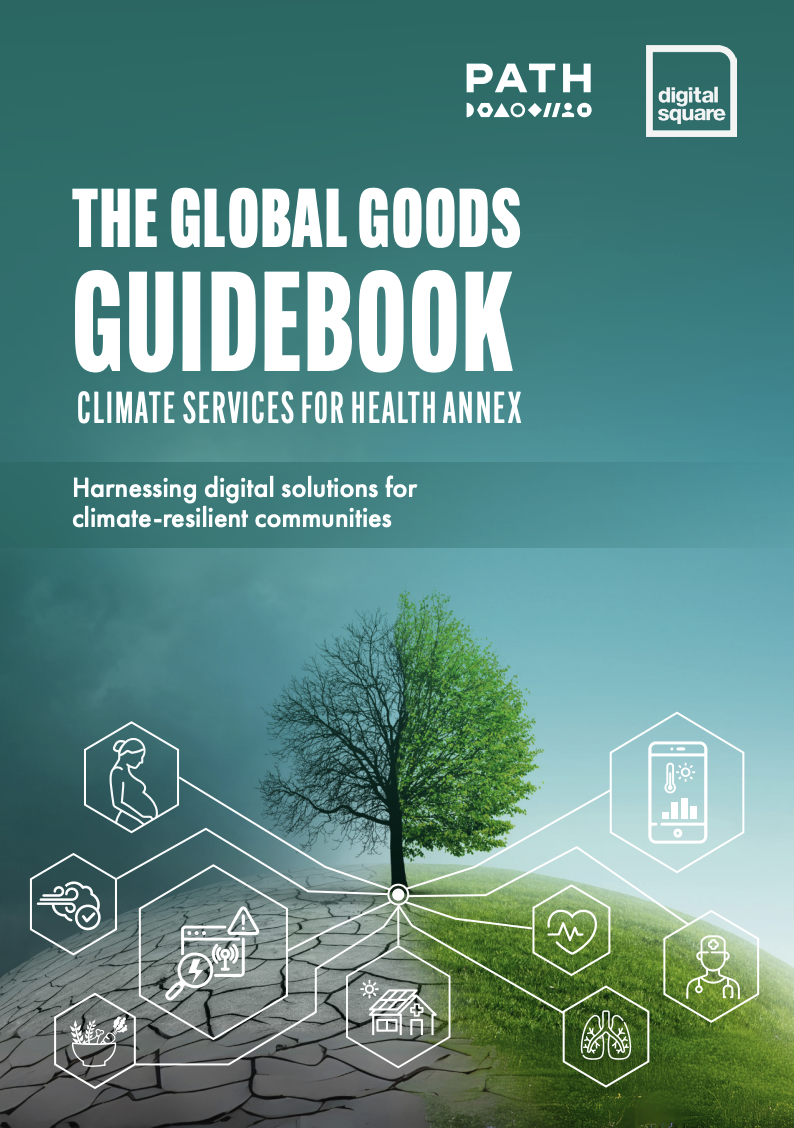Digital Square at PATH, 2025

Climate change is a growing and urgent health challenge, particularly for populations already facing health and economic disparities. Digital Public Infrastructure (DPI) is a set of interoperable digital systems and foundational building blocks that can enable effective delivery of services, promote inclusion, and support governance that benefits the public when aligned with social, cultural, political, and local socio-economic norms that inform complex health system governance. DPI is essential for integrating climate and health data, allowing policymakers and health leaders to make informed decisions as they build climate-resilient health systems. By combining satellite data, weather patterns, and health sector insights, we can better predict disease outbreaks, respond to changing health needs, and mitigate the impact of extreme weather events.
Developed under the PATH-led Digital Public Infrastructure for Climate and Health (DPI4CH) project, the guidebook is part of a broader initiative funded by Wellcome and The Rockefeller Foundation, in collaboration with the World Health Organization (WHO) – World Meteorological Organization (WMO) Climate and Health Joint Programme, to improve knowledge sharing across climate and health experts and identify and share climate-informed trusted digital tools for health.
The project aims to identify digital public health global goods—open source tools that are adaptable to different countries and contexts to help address key health system challenges—that help countries integrate climate and health data and information, enabling them to better anticipate and respond to country health needs.



